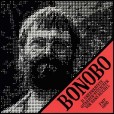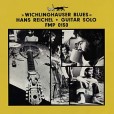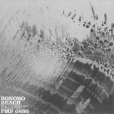Your basket is empty

His second LP, originally released by FMP in 1976. ‘Microtonal string investigations still beguiling and fresh four decades later.’
‘Originally released on FMP in 1973, the debut album by this legendary German guitar improviser and instrument inventor is a resonant and hilarious document of the nascent genius recording his peculiar and wondrous music alone in a studio. Acoustic and unfiltered electric guitars turned back into the supremely malleable instruments they were before they’d been firmly encoded as tools for rock or pop or jazz. Reichel uses a homemade 11-string guitar (with three pickups) for all the tunes except the first one. Reichel is like an improvising Harry Partch, investigating the genesis of lute music.’
‘Subtitled ‘some more guitar solos’; his fourth and final record of solo guitar works. Next Reichel would turn much of his attention to the bowed wooden-tongued instrument he created called the daxophone. Reichel recorded the six tracks at his home in Wuppertal in April, 1981, and in the process made what might be his masterpiece. These are not just some more guitar solos. Concentrating largely on acoustic guitar with no frets as well as his electric pick-behind-the-bridge guitar, he transforms tones into crystalline formations — patience with resonances, attention to silence, formation of symmetries around a common sonic point, jetting notes that arc and spread and then hover. One might look for other references to describe what Reichel is up to — the magic of Terje Rypdal, the aura of early William Ackerman, the eccentric multiple pickups of Fred Frith — but really this is unique in guitar repertoire. Reichel built his instruments as tools for improvised exploration, and then he dove deep into them, never so far as on tracks like Could Be Nice or the quivering Southern Monologue, or the two brilliant versions of the title track, Bonobo Beach. On Two Small Pieces Announced by a Cigar-Box, the titular box is bowed in a vocal manner that portends Reichel’s development of the daxophone.
‘A beautiful, essential document from one of the great outsider guitarists of all time.’



